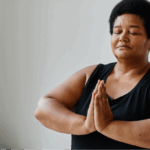Finding a therapist is an important step towards mental well-being, but for us, the process can be even more crucial. Having a therapist who understands the unique cultural, social, and historical experiences of Black people can make all the difference in providing effective and empathetic care. If you’re searching for a therapist who resonates with your identity, here are some practical tips to help you in your search:
1. Utilize Specialized Directories and Platforms
Several resources are dedicated to connecting Black individuals with culturally competent therapists. Consider these valuable starting points:
- Therapy for Black Girls: This online space provides a directory of Black therapists and valuable resources for Black women and girls seeking mental health support.
- The Association of Black Psychologists: This professional organization offers a directory of Black psychologists nationwide, ensuring you can find culturally competent care near you.
- Black Emotional and Mental Health (BEAM): BEAM is a national organization dedicated to promoting Black mental health and healing. They offer various resources, including a directory of Black therapists and culturally relevant mental health content.
- Inclusive Therapists: This online directory allows you to filter your search based on various identities, including race, ethnicity, sexual orientation, and more.
- Melanin & Mental Health: This organization connects individuals with culturally competent therapists, offering resources specifically designed for Black and Latinx communities.
2. Refine Your Search with Specific Terms
When searching for a therapist online, use targeted keywords to narrow down your options. Here are some effective search phrases to include:
- “Black therapist near me”
- “Culturally competent therapist for Black individuals”
- “Therapist specializing in racial trauma”
- “Therapist experienced in working with the Black community”
3. Ask for Referrals
Tap into your network and ask friends, family members, or trusted community leaders for therapist recommendations. Personal referrals can often lead to finding a therapist who understands your specific needs.
4. Prioritize Cultural Competency
When reviewing a therapist’s profile, look for explicit mention of their experience working with Black individuals and their understanding of cultural issues that may affect your mental health.
5. Schedule a Consultation
Most therapists offer brief consultations to prospective clients. Use this opportunity to ask questions about their approach, experience working with Black individuals, and their understanding of cultural nuances.
Remember:
- Trust Your Instincts: It’s essential to feel comfortable and safe with your therapist. If something doesn’t feel right during the initial consultation, trust your gut and continue your search.
- It’s Okay to Switch: If you find that your current therapist isn’t the right fit, don’t be afraid to seek another one. Finding the right therapist is a journey, and it’s okay to explore different options until you find someone who truly understands and supports you.
Finding a therapist who understands your unique experiences as a Black individual is crucial for your mental well-being. By utilizing specialized resources, refining your search with specific terms, and prioritizing cultural competency, you can find a therapist who empowers you on your journey toward healing and growth.
You Might Also Like:

Episode 6 Recap: Pre-Eclampsia During Seven Pregnancies







